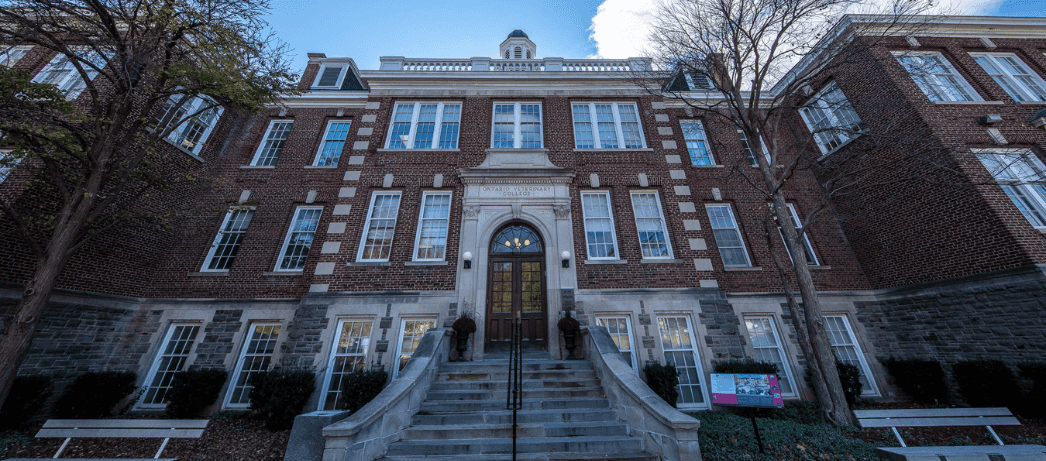
OVC Celebrates New Legislation that Modernizes Governance of Veterinary Profession
June 10, 2024
The Veterinary Professionals Act, 2024 (Bill 171) received Royal Assent on June 6, 2024, representing a significant milestone in the regulation of veterinary professionals in Ontario. Repealing the previous Veterinarians Act, this modernized legislation aims to enhance access to professional animal care and recognize the evolving roles of veterinary technicians.
In a statement from the College of Veterinarians of Ontario (CVO)’s President, Dr. Wade Wright noted that this milestone is good news for the animal-owning public and the veterinary profession.
The Ontario Veterinary College’s Dean, Jeffrey Wichtel, echoed these sentiments, noting that the Act’s focus on team-based care was a welcome change in this modernized act.
“The Recognition of Registered Veterinary Technicians (RVTs) will open the door for higher-performing teams and more efficient delivery of services,” said Wichtel.
Key Highlights of the Veterinary Professionals Act, 2024:
Interpretation and Governance
- Part I provides clear definitions for terms used in the Act.
- Part II focuses on the governance of the College of Veterinary Professionals of Ontario (CVPO). It establishes the College’s objects and outlines rules for the Council and committees.
Authorized Activities and Restrictions
- Part III sets rules for authorized activities, specifying who can perform them and under what circumstances.
- It addresses serious bodily harm to animals or persons resulting from treatment, advice, or omission.
- Restricted titles are defined, along with conditions for their use.
Licensing and Accreditation
- Part IV deals with licensing for CVPO members, including application procedures, terminations, and hearings.
- Accreditation of veterinary facilities is also covered.
Quality Assurance and Professional Practice
- Part V establishes the College’s Executive Committee.
- Part VI outlines a quality assurance program to ensure high standards of practice among members.
Reporting and Complaints
- Part VII requires certain individuals to report specific matters to the Registrar of the College.
- The process for addressing complaints against members is detailed.
Investigations and Resolutions
- Part VIII outlines the powers and duties of the Investigations and Resolutions Committee.
- It addresses conduct-related investigations.
Professional Conduct and Fitness to Practice
- Part IX covers professional misconduct, incompetence, and impairment.
- The Discipline and Fitness to Practice Committee handles these matters.
Appeals
- Part X allows for appealing decisions or orders to the Divisional Court.
While the new legislation will not impact OVC’s mission immediately, the modernized Act will undoubtably catalyze innovation in the veterinary care sector; the University of Guelph will play its part in preparing future cohorts of veterinarians and technicians to grasp these opportunities to address the ever-growing demands for veterinary healthcare.
“These changes will inform our academic programs to ensure our veterinarians and technicians can act as effective team members and leaders, overcoming obstacles to deliver veterinary care throughout the Province,” said Wichtel.
The University of Guelph will launch a new suite of educational opportunities for RVTs by the Spring of 2025, specifically designed to leverage the enhanced practice model made possible by legislative modernization.
For more information on the Act, you can visit the Legislative Assembly of Ontario’s page on Bill 171.
.png)